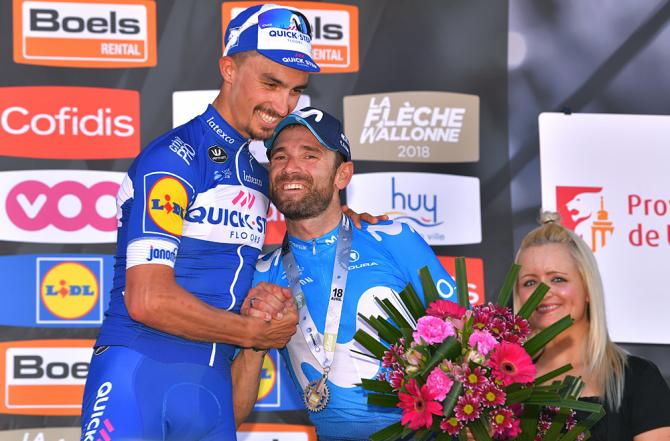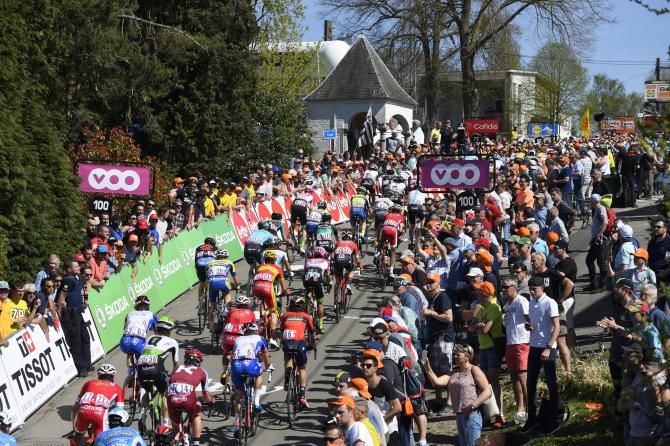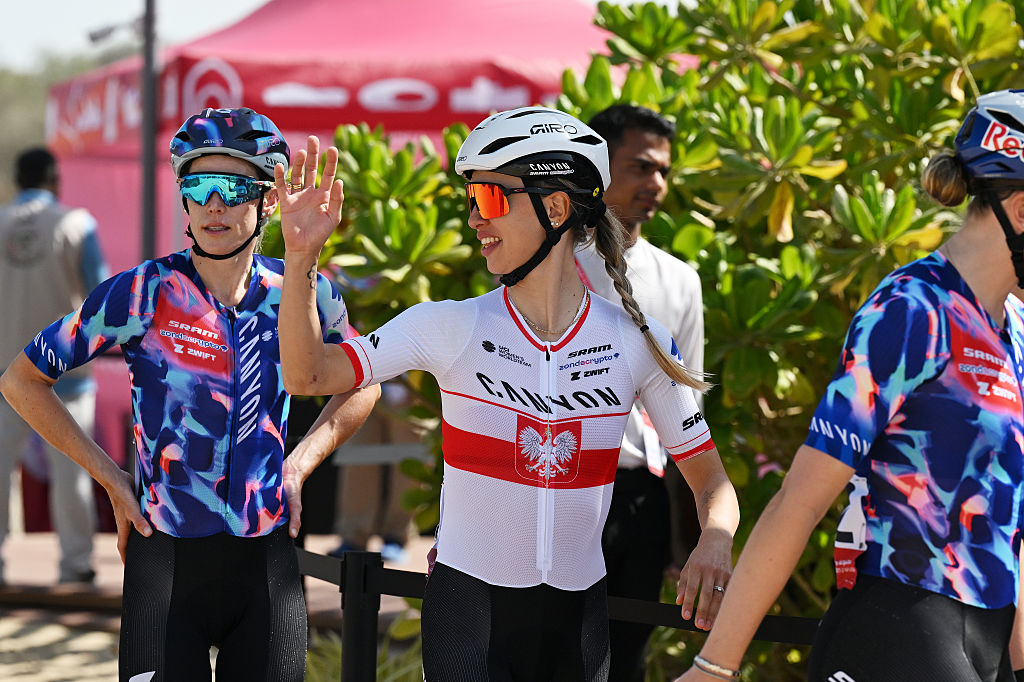Fleche Wallonne 2019: Preview
Past winners Alaphilippe and Valverde lead group of favourites
The latest race content, interviews, features, reviews and expert buying guides, direct to your inbox!
You are now subscribed
Your newsletter sign-up was successful
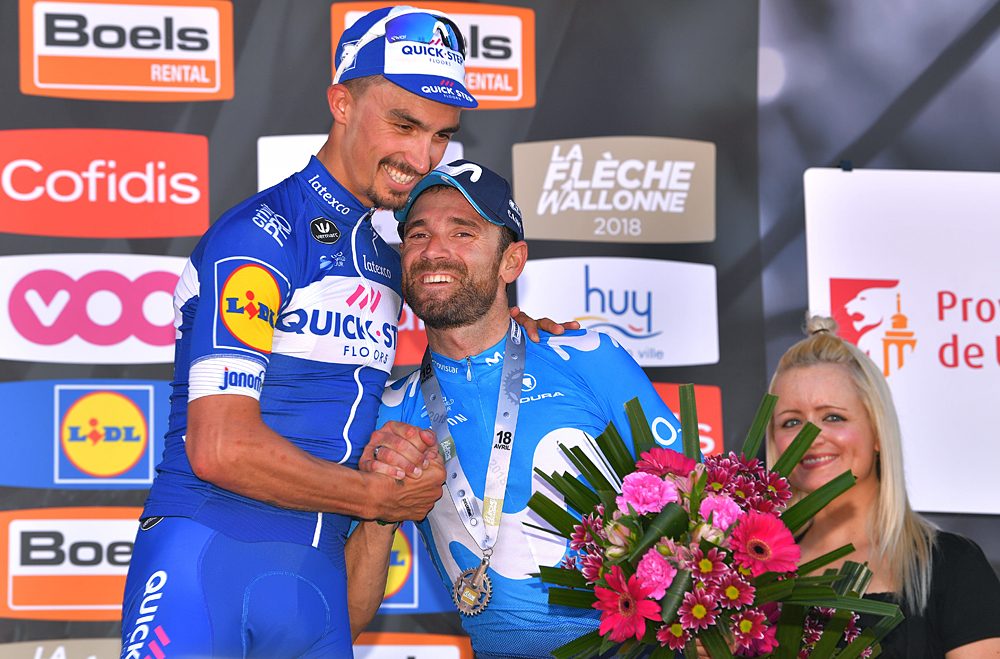
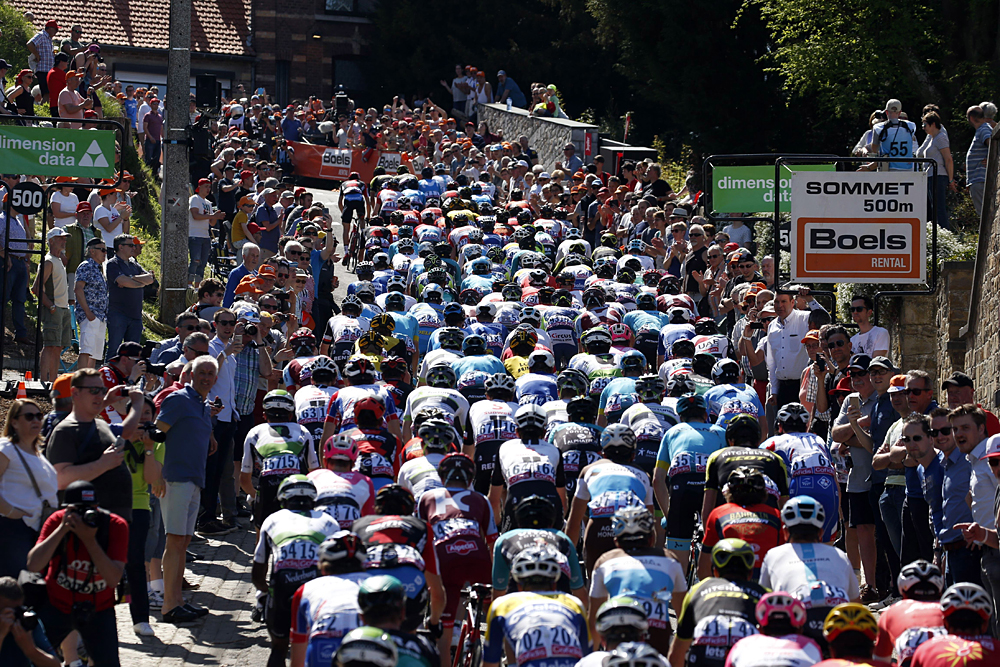
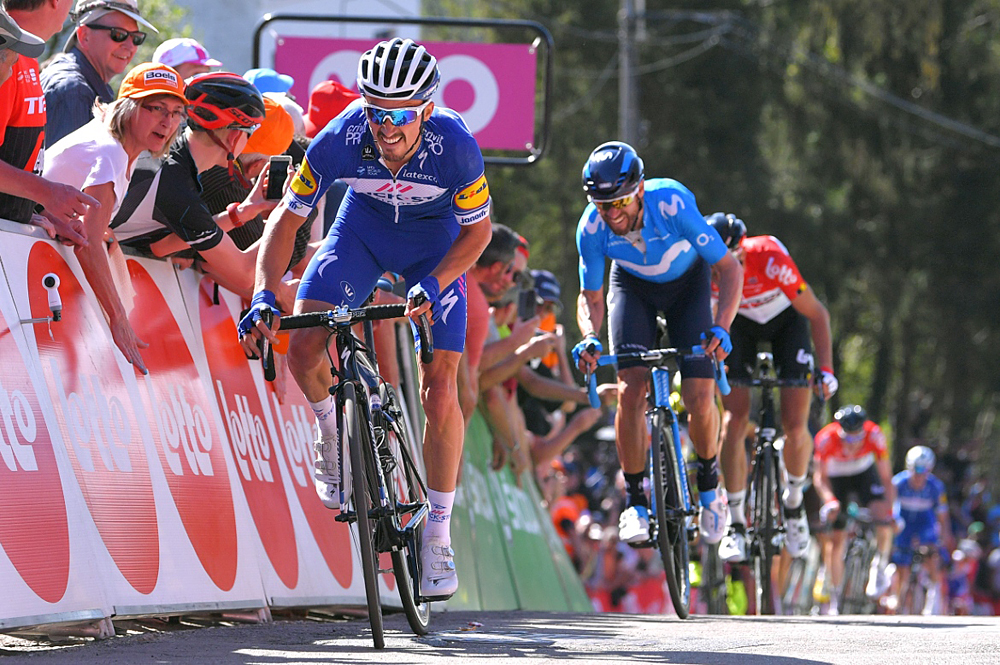
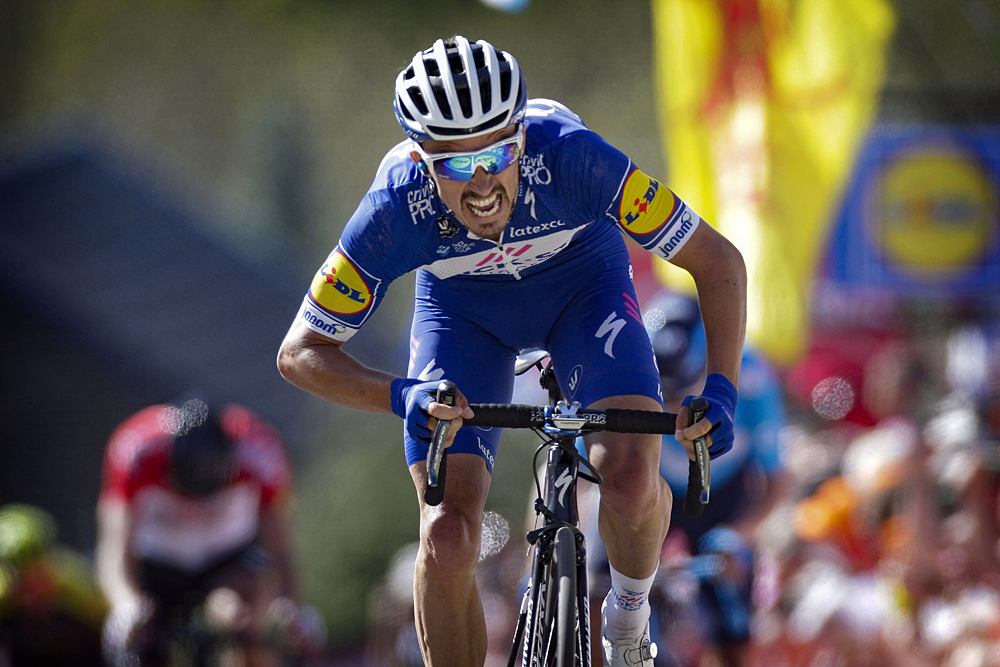
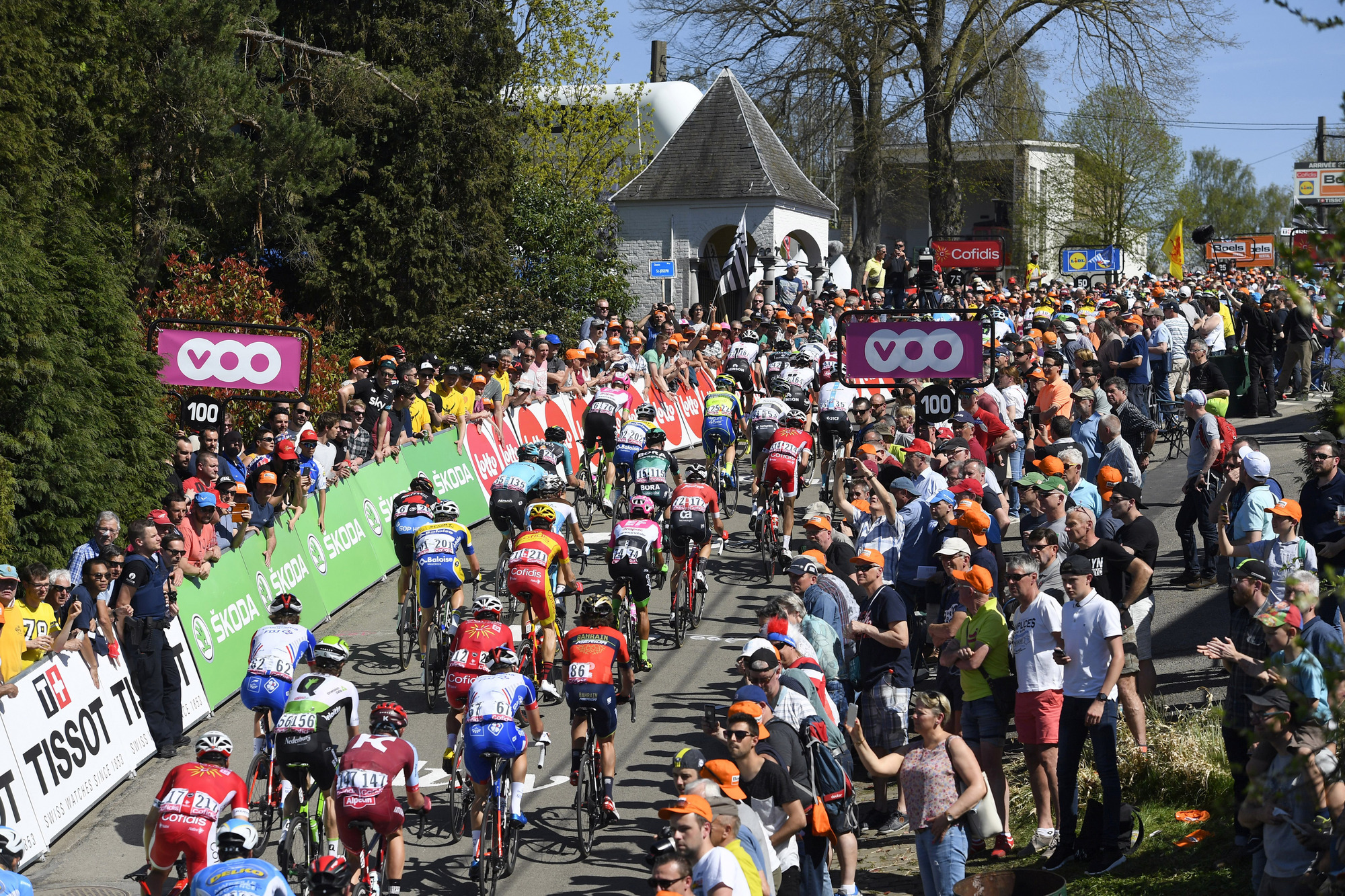
While the title of Ardennes Classics has been extended to Amstel Gold Race, the Ardennes truly start with Flèche Wallonne. The race used to be held on a Friday but was moved back to its mid-week slot in the 1980s, taking place on the Wednesday between Amstel and Liège-Bastogne-Liège.
Particularly with the redesigned Liège-Bastogne-Liège finish, Flèche Wallonne is a rare chance for pure climbers to win a one-day race. However, the nature of how the race is ridden means that the odd sprinter that can also climb have found themselves at the pointy end of the results. One thing's for certain, and that's that Dutch phenomenon, and Amstel Gold Race winner, Mathieu van der Poel (Corendon-Circus) will not be racing on Wednesday.
Leading the charge for victory at Flèche Wallonne are Alejandro Valverde (Movistar) and Julian Alaphilippe (Deceuninck-QuickStep). Valverde holds the record for the number of victories at the race with a total of five – two more than any other rider. Unusually for Valverde, he comes into the race with just one win in his back pocket – a stage of the UAE Tour in February. The Spaniard has still been in the mix in most of the races he's done, recently riding to an impressive top 10 at his debut Tour of Flanders, but he has lacked that knock-out punch needed to win races. Sunday's Amstel Gold Race was disappointing for Valverde, but he has performed badly there in the past and still gone onto win Flèche.
Alaphilippe is no doubt the major favourite for the Flèche Wallonne title. He broke Valverde's deadlock on the race last season, becoming the first Frenchman since Laurent Jalabert in 1997 to win the race. Alaphilippe has been one of the stars of the season so far, winning Milan-San Remo and Strade Bianche, as well as stages of Tirreno-Adriatico and the Itzulia Basque Country. He looked on course to win Amstel, too, until he and escape partner Jakob Fuglsang (Astana) were dramatically caught in the final kilometre. Although Alaphilippe will be the main priority for Deceuninck-QuickStep, they always have options, and Enric Mas will be one to watch. Mas abandoned in his debut last year, but it is a finale that suits him.
Fuglsang will also be back in action on Wednesday, but unlike his French counterpart, Flèche has not been a particularly rich hunting ground for Fuglsang in the past. The Astana man has ridden the race eight times, and has only made it into the top 10 once. In his form, you can't ignore him as a contender but Liège-Bastogne-Liège probably holds a better chance of success for the Dane.
A rider that has done well at Flèche in the past is Dan Martin (UAE Team Emirates). He has made the top 10 five times, finished on the podium on three occasions and been the runner up twice, but he has never managed the top step. Martin has looked increasingly strong as the season has progressed, finishing second to Ion Izagirre (Astana) at the Basque Country at the start of April. He chose to skip the Amstel Gold Race in order to be fully ready for Flèche and Liège. UAE Team Emirates also has former runner-up Sergio Henao, and Rui Costa.
After a disappointing cobbles campaign for Team Sky, Michal Kwiatkowski is looking to give the team something to cheer about before they become Team Ineos at the end of the month. Kwiatkowski has designed his season around this week in April, particularly with an eye to his second Monument victory at Liège-Bastogne-Liège – although a win at Flèche Wallonne would be heartily welcomed. Kwiatkowski has enjoyed some strong results so far this season, such as third at Milan-San Remo. He looked well at the Amstel Gold Race as he chased down Fuglsang and Alaphilippe, only to be beaten by Van der Poel at the end.
The latest race content, interviews, features, reviews and expert buying guides, direct to your inbox!
In contrast to Sky, EF Education First have had a great spring with Alberto Bettiol’s win at the Tour of Flanders. The Italian is not in action on Wednesday, but they do have cards to play. Simon Clarke rode a particularly astute Amstel Gold Race to finish second, while Michael Woods will enjoy the double-figure gradients of the Mur de Huy.
Michael Matthews (Team Sunweb) is not a rider that you would immediately think of as a contender when you look at the parcours, but the Australian managed an impressive fifth place last year. Matthews had a bumpy start to the season but has been on strong form across the spring, winning two stages at the Volta a Catalunya before going on to claim sixth in his debut Tour of Flanders. A win is unlikely to be on the cards but a podium place could be within his reach.
Adam Yates (Mitchelton-Scott) will be an interesting watch on Wednesday. He has only ridden it twice before with 97th and a DNF as his two results, but the parcours is one that should suit him and he comes in with good form, having won a stage at all but one of the stage races he's ridden so far this year. Flèche Wallonne will be his first one-day race of the season.
Whether or not he makes the podium, we can expect Tim Wellens (Lotto Soudal) to light up the finale of the race. Wellens made the top 10 for the first time last year, and he looked strong on his ride to third at Brabantse Pijl last week, although he had an off-day at Amstel Gold Race. Lotto Soudal also have last year’s third-place finisher Jelle Vanendert and the young Bjorg Lambrecht, who looked good on Sunday. Romain Bardet (AG2R La Mondiale) can also be expected to do his best to make it an aggressive finale on the new-look circuit.
Other riders to keep an eye on are Dylan Teuns (Bahrain-Merida), David Formolo (Bora-Hansgrohe), David Gaudu (Groupama-FDJ), Brandon McNulty (Rally UHC), Romain Kreuziger (Dimension Data), and Bauke Mollema (Trek-Segafredo).
The route
As the only one-day WorldTour race with an uphill finish, Flèche Wallonne has been defined by the Mur de Huy since it was first included in 1984. The 1.3-kilometre ascent averages just over nine per cent and hits painfully steep gradients of 26 per cent, making it difficult for anyone to get away. Despite the riders’ best efforts, the race-winning move has rarely gone before the final ride up the climb on the outskirts of Huy. In fact, the last time that the race winner broke free before the Mur de Huy was in 2003 when Igor Astarloa attacked with 11 kilometres to go, joined by Aitor Osa. The pair rode to the finish line together, with Astarloa sprinting to the win.
Although the Huy has remained a permanent fixture for the best part of four decades, the run into the finish line has been tweaked on several occasions. Over the winter, organisers ASO have made some new changes to the finale in the hope of making it a bigger challenge, and perhaps enticing more riders to dare to go earlier. The race is also a kilometre longer than last year, at 195.5 kilometres.
But let’s start at the beginning. With the finish of Liège-Bastogne-Liège returning to the centre of the city, the start line of Flèche Wallonne has moved out to the Liège suburb of Ans, where the Monument used to set off from. From Ans, the route briefly heads north before turning south and then west as it navigates its way around the edges of Liège.
There is the same number of climbs on the route as there were last year. With the vast majority of them coming in the final two laps near Huy, there are far fewer in the early part of the route. Just two categorised ascents come before the final loop with the Cote de Tancremont coming after 47 kilometres and the Cote des Forges 11 kilometres later. There may only be two categorised ascents, but there is plenty of up and down along the route to tire the riders out.
The peloton will enter the final circuit with 77 kilometres still on the clock. The finishing circuit has been a feature of the Flèche Wallonne route for some time now, but it has been altered in previous years. The Cote de Cherave was included for the first time in 2015, sandwiched between the Cote d’Ereffe and the Mur de Huy. It was kept for the following season and then, in 2017, a second ascent was added.
For 2019, an extra ascent of the Ereffe and the Cherave have been inserted into the final circuit – meaning that they, along with the Mur de Huy, will be climbed a total of three times each. This means nine climbs in the final 77 kilometres – which is no mean feat when the race is almost 200 kilometres in length.
The run-in may have changed, but the finish itself remains the same, and the chances are that the winning move will still come on the Mur de Huy. However, the altered route makes for a much more challenging finale, and gives those that don’t fancy their chances in an uphill sprint a few more chances at getting away. It will also take more out of the main contenders, particularly if it is ridden aggressively.
Born in Ireland to a cycling family and later moved to the Isle of Man, so there was no surprise when I got into the sport. Studied sports journalism at university before going on to do a Masters in sports broadcast. After university I spent three months interning at Eurosport, where I covered the Tour de France. In 2012 I started at Procycling Magazine, before becoming the deputy editor of Procycling Week. I then joined Cyclingnews, in December 2013.
